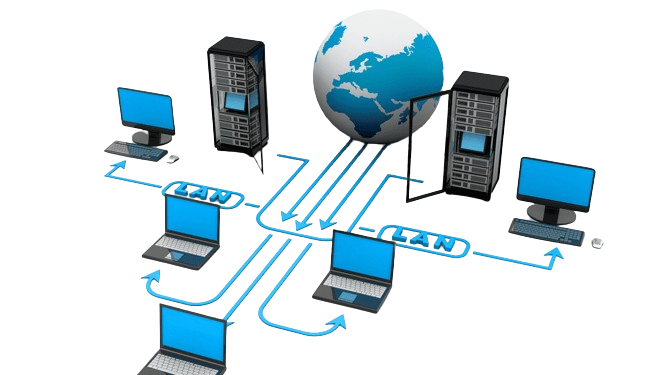
Enterprise networking services
Enterprise networking services is the complete set of networking technologies and solutions developed to meet the connectivity and communication needs of an enterprise or a large organization. Enterprise networking services are necessary to ensure secure and transparent communication between various components of an organization and to establish connectivity with external networks and the internet. The following is a list of the primary components and features typically covered by enterprise networking services:
1. Local Area Network (LAN) Services:
Ethernet Services: Provides quick connectivity in a physical area, e.g., offices, campuses, or data centers.
Wireless LAN (WLAN): Provides wireless connectivity for laptops and mobile devices in an assigned area, providing mobility and flexibility.
2. Network Security Services:
Firewall and Intrusion Prevention Systems (IPS): Protects the enterprise network from unwanted entry, malware, and other cyber attacks.
Virtual Private Network (VPN): Establishes secure remote access connections for employees beyond the corporate network.
3. Cloud Networking Services:
Cloud Connectivity: Establishes secure and reliable connections to public cloud services (e.g., AWS, Azure, GCP) and private cloud environments.
Cloud-Based Security Services: Provides cloud-native security solutions for protecting data and applications resident in the cloud.
4. Network Management and Monitoring:
Network Performance Monitoring: Tracks network traffic, performance statistics, and utilization to ensure optimal performance and identify potential issues.
Configuration Management: Automates network configuration tasks and ensures consistency across devices.
5. Collaboration Tools and Applications:
Video Conferencing: Enforces live video and audio communication for virtual meetings and collaboration.
Collaboration Platforms: Integrates messaging, file sharing, and project management tools to enable teamwork and productivity.
